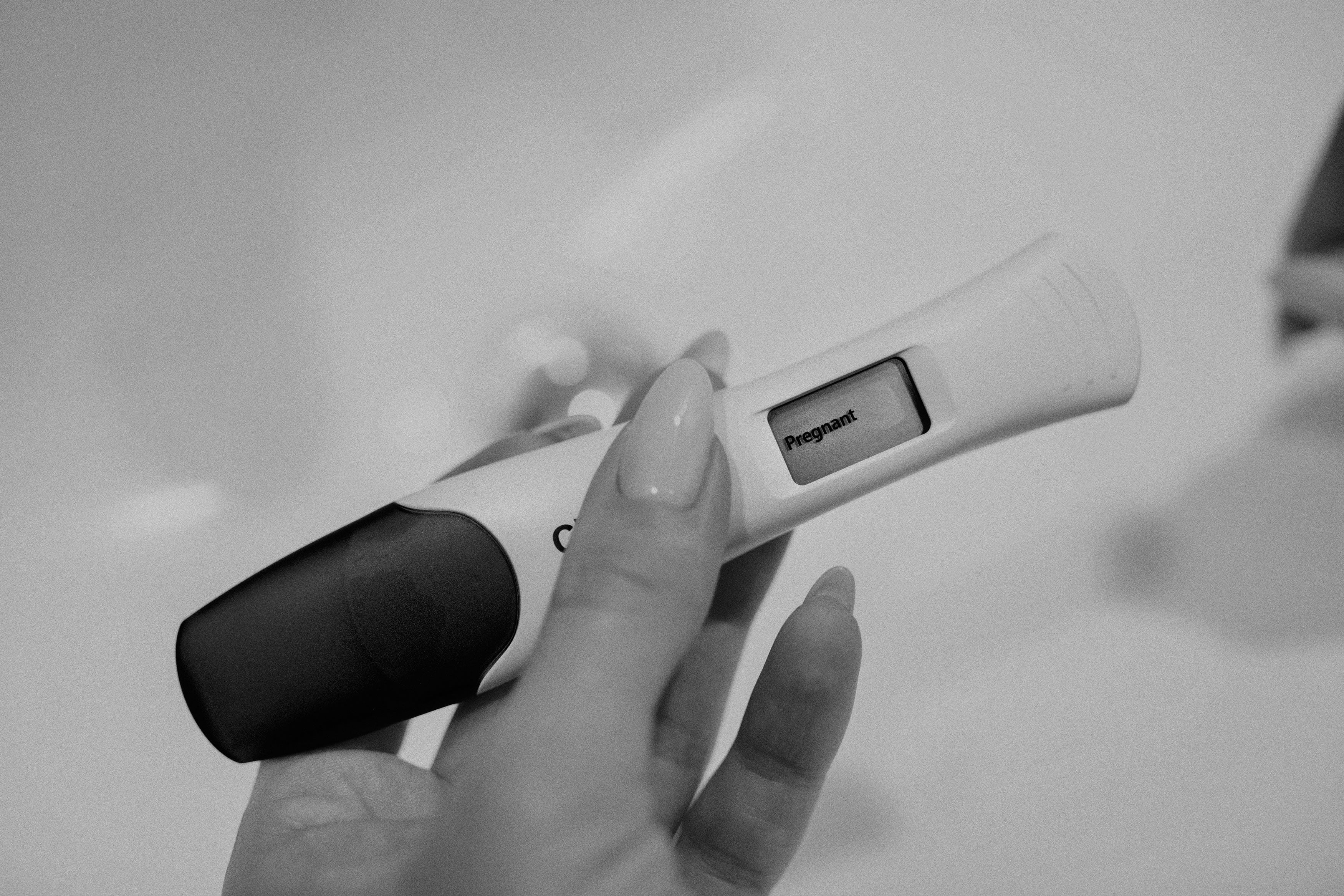The first trimester of pregnancy is the period of time from the first day of your last period to the end of week 12. A lot happens during those first 3 months and your baby is developing faster than at any other time in pregnancy. Your body will be undergoing big changes too and you are likely to be getting some pregnancy-related symptoms. It can be an exciting but for many, also an overwhelming time, so knowing what to expect physically and emotionally can help you navigate this first stage of pregnancy.
Changes to your body
For most women, the first sign of pregnancy is a missed period. It’s common for women to experience pregnancy-related symptoms in the weeks that follow. However, every pregnancy is different and not all women experience symptoms in the first trimester. For some women, the absence of symptoms can understandably lead to anxiety as they await their first scan, but a positive pregnancy test is normally a good sign. Symptoms you could experience include:
- Tender or swollen breasts - due to hormonal changes after conception. This should ease as the pregnancy progresses.
- Tiredness - related to hormonal changes and a rise in the hormone progesterone which is can promote sleepiness. Try to rest as much as possible, eat well, stay hydrated and do gentle exercise.
- Nausea and sickness – often called morning sickness, but this can in fact happen at any time of day or night. It’s often worse in the first trimester but can persist for some women. It can be a difficult symptom to manage and make the day to-day challenging. There are many ways to help, try eating small, carbohydrate-heavy meals and avoid foods and smells that trigger your sickness. Get plenty of rest and ensure you are well hydrated. Food and drinks containing ginger can sometimes help, as can acupuncture or travel sickness bands. If you are struggling to keep fluids and food down, you could have a severe form of nausea and sickness called Hyperemesis Gravidarum, so please speak to your antenatal care provider for advice.
- Constipation – A high level of progesterone can lead to constipation and bloating. Make sure you are drinking plenty of water and eating a fibre-rich diet. Being physically active will also help.
- Heart burn – this can begin from the first trimester. Pregnancy hormones relax the valve between your stomach and your oesophagus allowing acid to reflux up the oesophagus. Avoiding heavy meals and food triggers such as spicy foods can help. Gaviscon can help to ease symptoms and if severe, a medication called Omeprazole may be prescribed.
- Increased urination – hormonal changes can increase the frequency of urination and your growing uterus may also press on your bladder. Look of for any other changes that could indicate a urine tract infection, such as a change in smell or pain on passing urine. Urinary tract infections are common in pregnancy - please speak to your midwife or GP if you have concerns.
- Food cravings and food aversions - many women experience a change in appetite and food aversions, if you feel like this is stopping you from getting the essential nutrients and calories you need, speak to your healthcare practitioner.
For most women, a bump starts showing in the second trimester.
Do’s and don’ts in the First Trimester
There are some important lifestyle considerations when you find out you’re pregnant, and healthy living is an absolute priority. Smoking and alcohol consumption are not advised in pregnancy and caffeine should be limited to 200mg a day. You can exercise as normal, but avoid contact sports or activities that could easily result in injury such as horse riding. Aim to eat a well-balanced diet, rich in fibre and fruits and vegetables. There are some foods you need to stay clear of pregnancy, you do not need to eat for two! Take antenatal vitamins including Folic acid and Vitamin D to support a healthy pregnancy.
Mental health
The huge hormonal changes of the first trimester mean it’s normal to feel emotional. Coping with early pregnancy symptoms can also take its toll on your wellbeing. 1 in 5 women can also develop pregnancy depression or anxiety. If you are feeling low tearful or anxious, and symptoms have lasted more than a couple of weeks, speak to your GP for advice and support.
Your baby
Following conception and a fertilised egg, your baby will grow rapidly in the first trimester. In fact, the first trimester is associated with the most rapid phase of growth and is when all the major organs develop. By the end of the first trimester, your baby’s heart will start beating. Their brain and spine will begin to develop and in the first few weeks arms and legs begin to bud from the developing foetus. Facial features begin to take shape, such as the forming of eyes and ears.
Your care
Your first-trimester antenatal care will be kicked off by you getting a referral or self-referring to your antenatal clinic of choice. Following this you will be invited in for a booking visit with the midwife to plan your antenatal care and your first scan, which normally takes place between 11-14 weeks. In your first trimester, you will also be offered screening tests, including tests for Down’s syndrome, Patau’s and Edwards syndrome.
Disclaimer: This article is for information only and should not be used for the diagnosis or treatment of medical conditions. For The Creators has used all reasonable care in compiling the information but make no warranty as to its accuracy. Consult a doctor or other health care professional for diagnosis and treatment of medical conditions.

